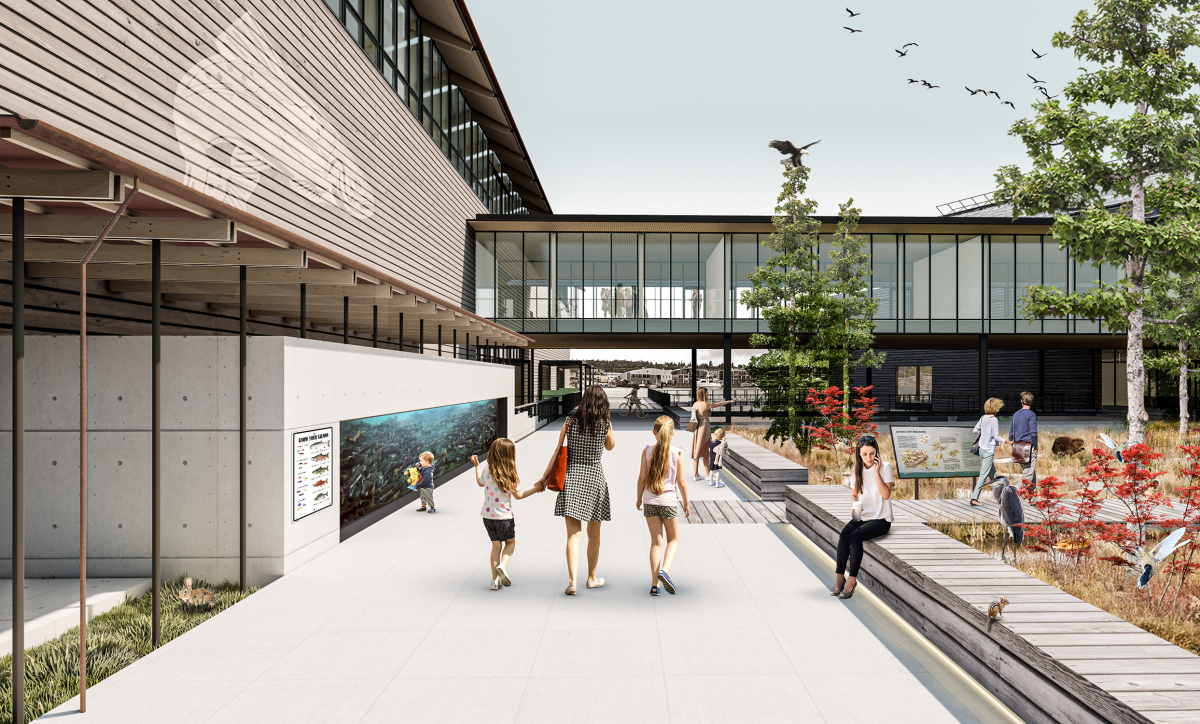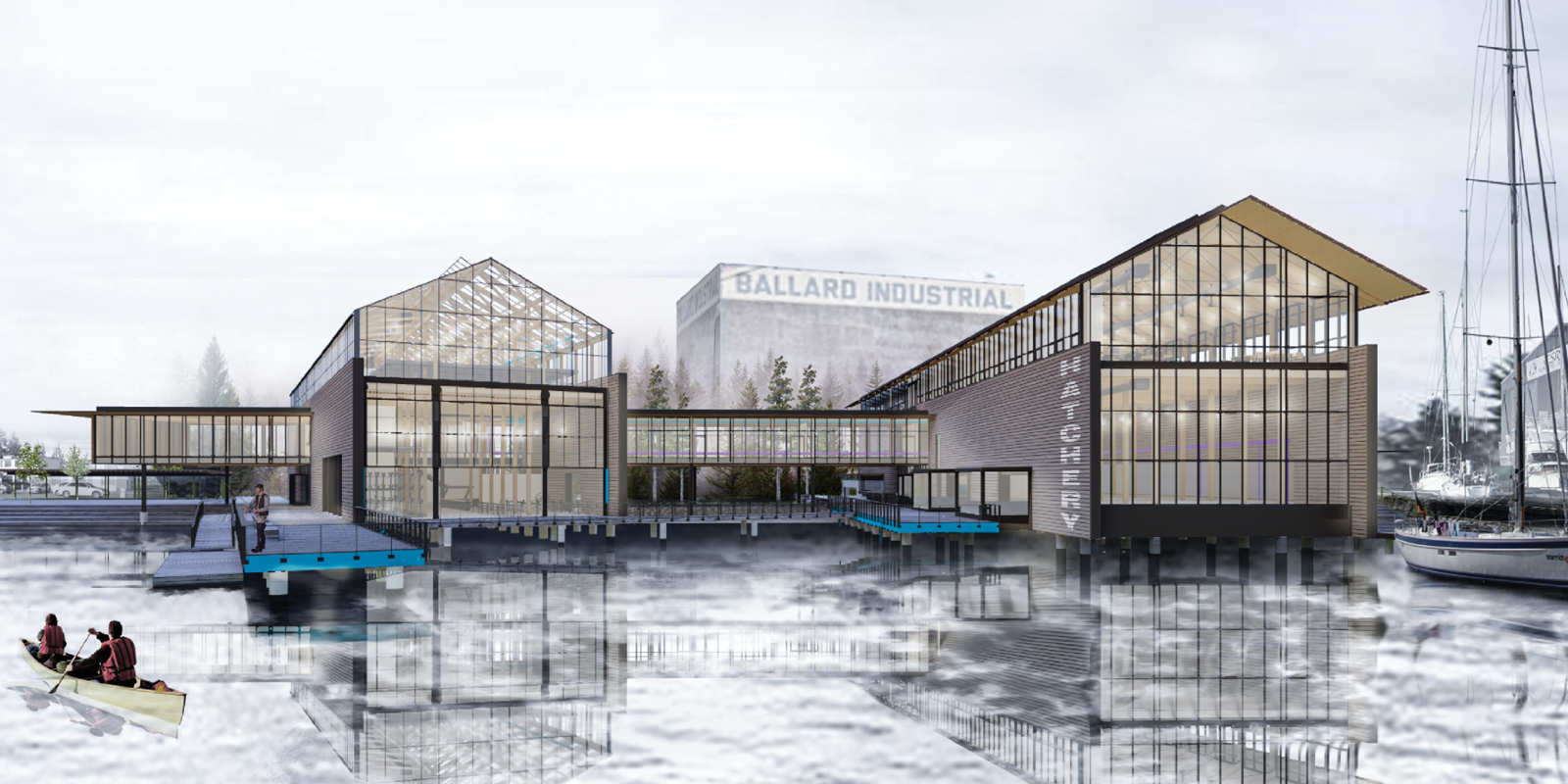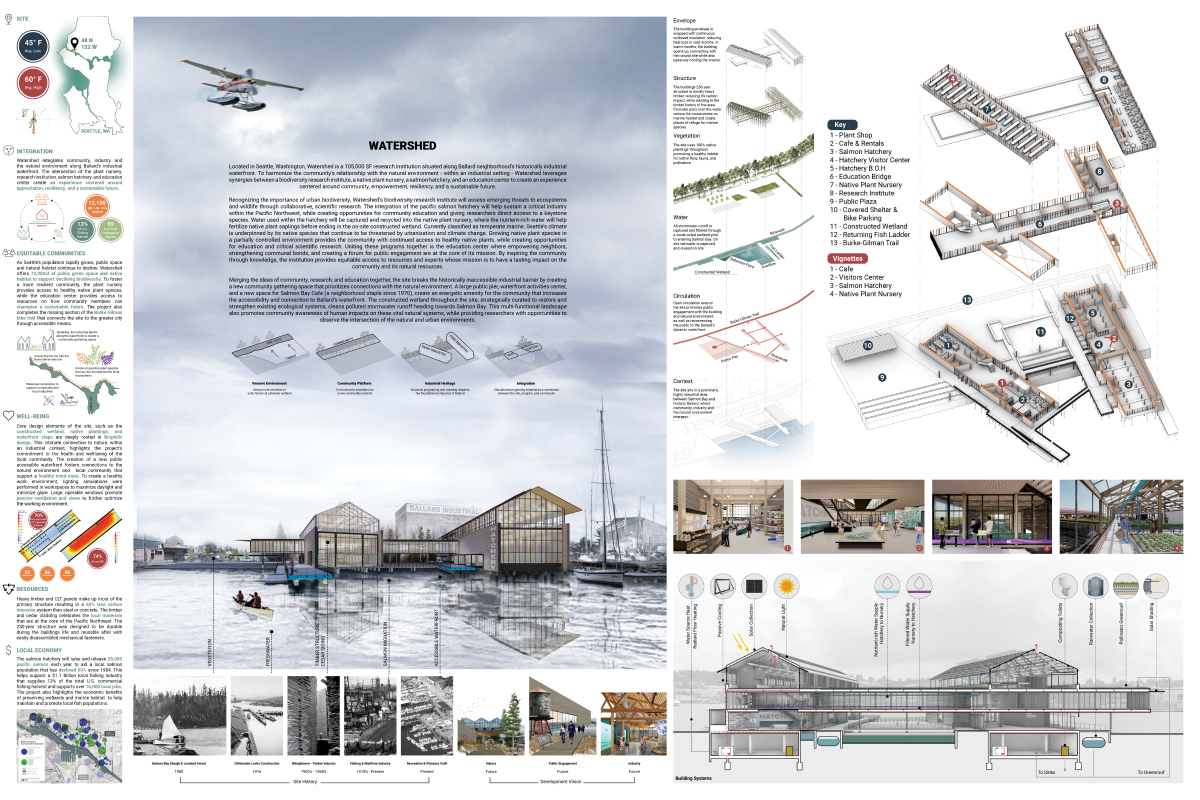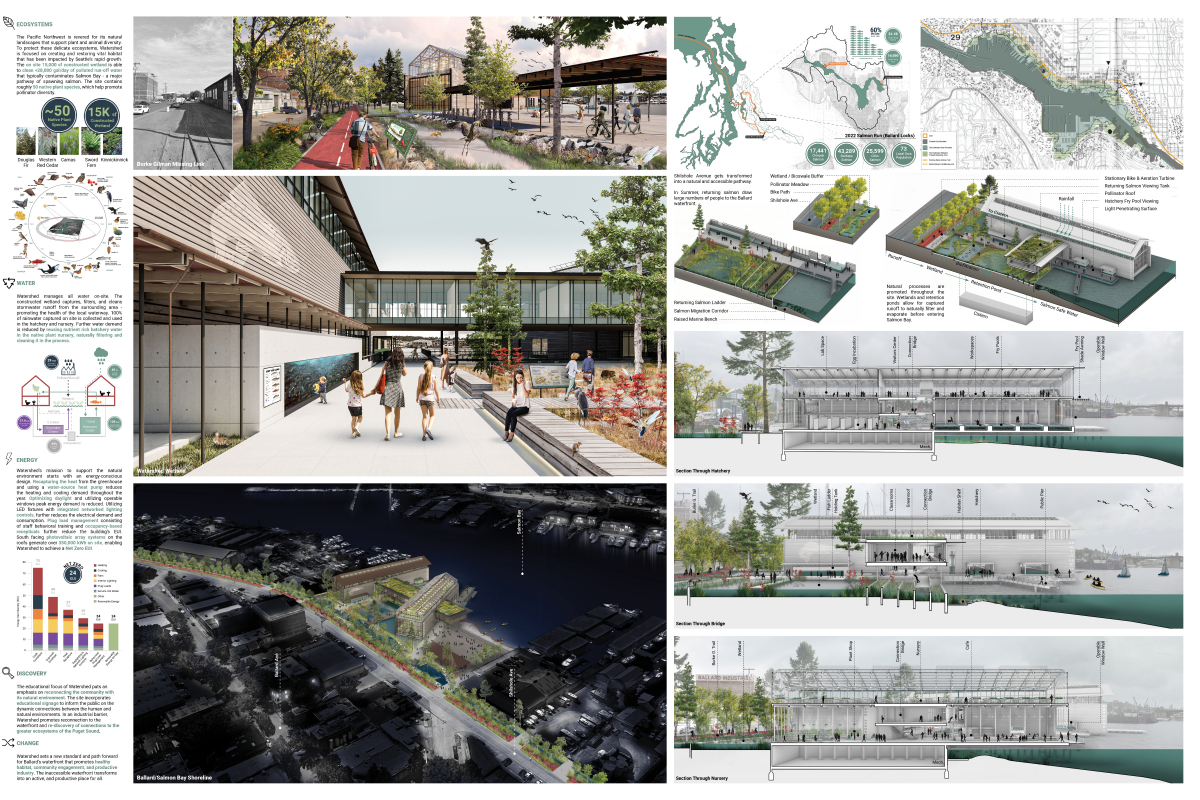MArch students Andrew Baltimore and Eric Luth were one of ten winning teams in the 2023 AIA/ACSA COTE Top Ten for Students Competition for their submission Watershed, completed in the Spring 2022 ARCH 508 Research studio with faculty Gundula Proksch and Chris Meek.
“Watershed is an enthralling design with robust information, well executed graphics and clear data. Effectively utilizing the boards to show the quantitative data-driven measures, the project represents a system thinking approach to the design, which clearly shows a rigor of understanding of analysis and environmental metrics.” – Competition Jury
Congratulations to our students and faculty for this outstanding achievement!
Project Description
Located in Seattle, Washington, Watershed is a 105,000 SF research institution situated along the Ballard neighborhood’s historically industrial waterfront. To harmonize the community’s relationship with the natural environment – within an industrial setting – Watershed leverages synergies between a biodiversity research institute, a native plant nursery, a salmon hatchery, and an education center to create an experience centered around community empowerment, resiliency, and a sustainable future.
Recognizing the importance of urban landscapes within the larger biosphere, Watershed’s biodiversity research institute will assess emerging threats to urban ecosystems and wildlife through collaborative, scientific research. The integration of the pacific salmon hatchery will help sustain a critical industry within the Pacific Northwest, while creating opportunities for community education and giving biodiversity researchers direct access to a keystone species. To maximize programmatic synergies, waste water from the hatchery will be captured and recycled into the native plant nursery, where the nutrient-rich water will help fertilize native plant saplings before terminating in the on-site constructed wetland.
Currently classified as temperate marine, Seattle’s climate is underpinned by its native species that continue to be threatened by urbanization and climate change. Growing native plant species in a partially controlled environment provides the community with continued access to healthy native plants, while supporting educational opportunities and critical scientific research. Uniting these programs together is the education center where empowering neighbors, strengthening communal bonds, and creating a forum for public engagement are at the core of its mission. By inspiring the community through knowledge, the education center provides equitable access to resources and experts whose mission is to have a lasting impact on the community and its natural resources.
Merging the ideas of environment, community, and research together, the site breaks the historically inaccessible industrial barrier along the waterfront by creating a new community gathering space that prioritizes the health of the natural environment. A large public pier, a waterfront activities center, and a new space for the existing Salmon Bay Café (a neighborhood staple since 1970) create an energetic amenity for the community that increases accessibility and connection to Ballard’s waterfront. The constructed wetland throughout the site, strategically curated to restore and strengthen existing ecological systems, cleans polluted stormwater runoff heading towards Salmon Bay. This multi-functional landscape promotes community awareness of human impacts on these vital natural systems, while providing researchers with opportunities to observe the intersection of the natural and urban environments.



